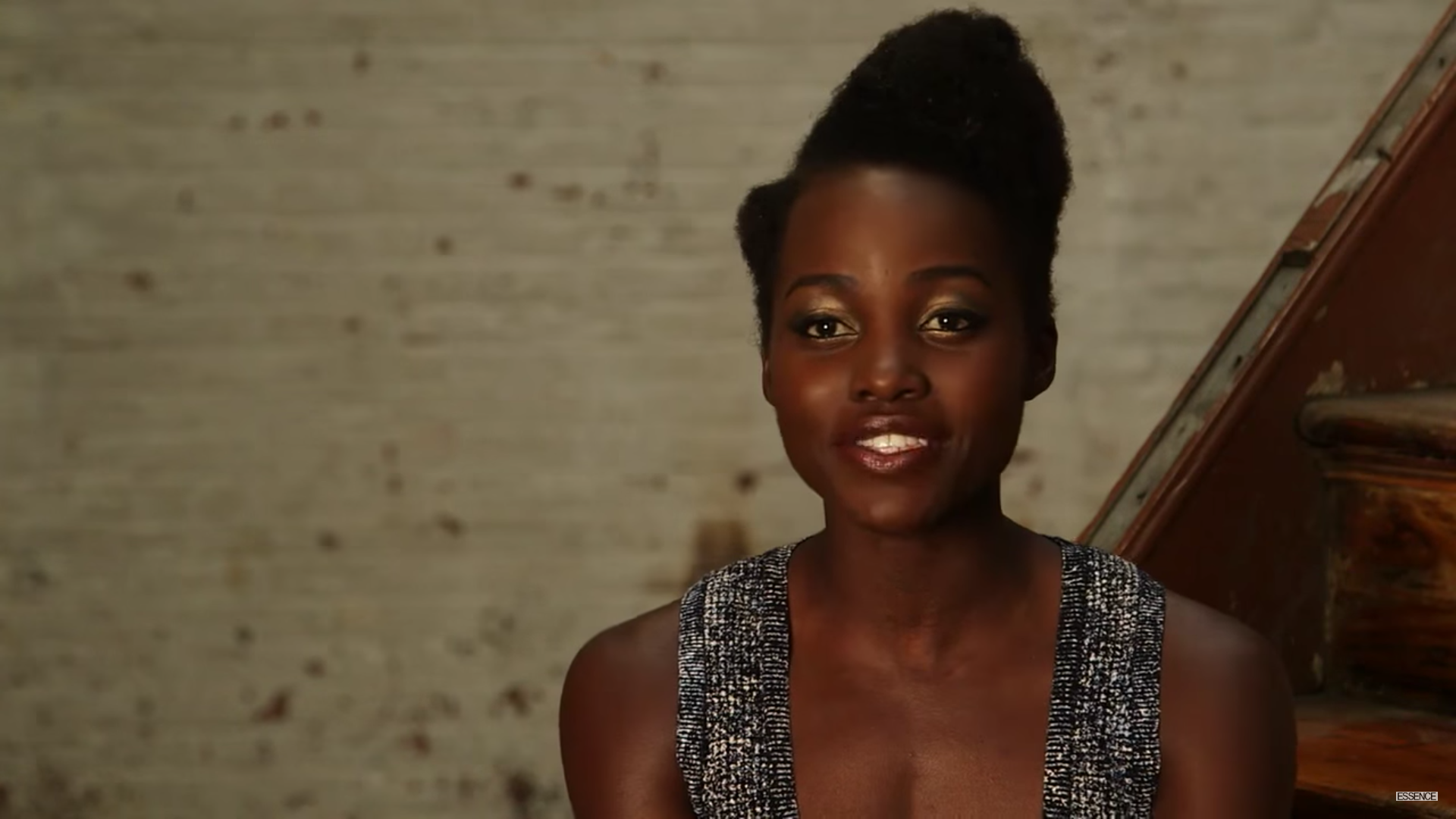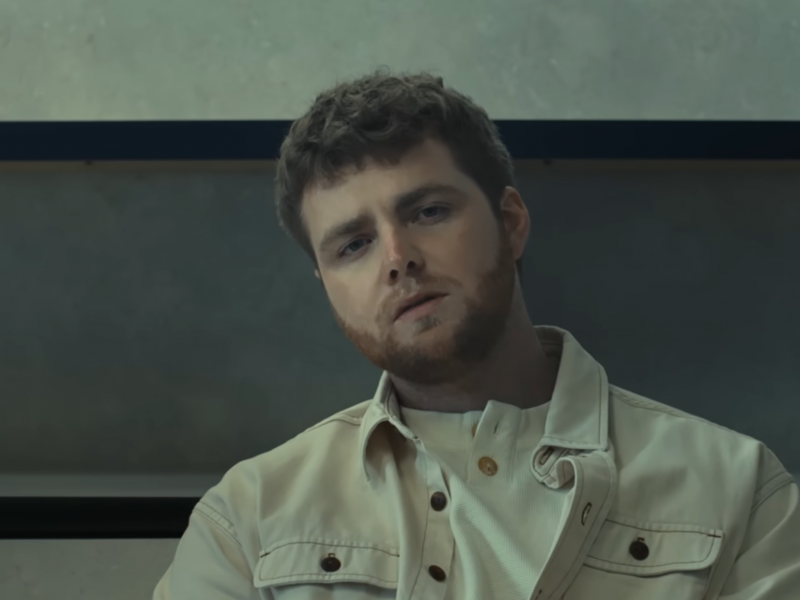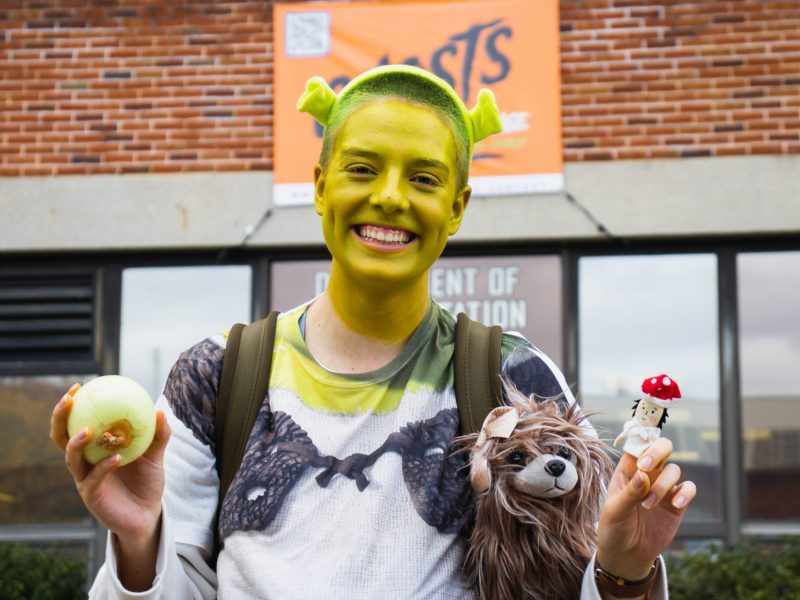Lupita Nyong’o has played fictional characters, both in the flesh and as a voice actress. She’s played a historical figure, for which she won an Academy Award. Now, she’s playing a person that’s still alive, whose story is very fresh in her memory.
Nyong’o plays the mother of chess prodigy Phiona Mutesi in Disney’s newest film, Queen of Katwe. She sat down with The Diamondback and four other local publications this week for an interview about the upcoming movie and getting to know the people and the country behind the story of a young woman who played her way out of the slums with a chess board. Here are the best questions and answers from that chat:
Cheat sheet: Phiona is the story’s protagonist, Harriet is her mother, and Robert Katende is her mentor.
Q: So how’s the tour been going so far for the movie?
L: I mean, it’s just been a few days, but it’s been some powerful days. I’ve been waiting for this press tour to start because I’m so in love with this story and so eager to share it with the world, so it’s nice to finally be able to talk about it and have people be able to watch it and react to it and experience it for themselves.
Q: Tell me about the first time this story crossed your desk.
L: It was around Christmastime in 2014, and Mira Nair, the director, sent it to me with a very brief email that said, ‘I wrote this with you in mind, please say you’ll do it.’ And I printed out a copy of the script, and less than 10 pages in I was weeping because I was just so moved that this story was being told, and it was from the perspective of this young girl from an unlikely place with an unlikely dream. The character that I was going to play was this layered mother, a woman who sees the world completely opposite from how I see the world. A woman who is suspicious of dreaming… because of the disappointment she has experienced in her own life. Her journey is one in which she has to discover that to truly love her daughter she has to let her daughter go and risk failure, but also risk success.
Q: I read that you really got to immerse yourself in the Ugandan culture and even learn the language. Did that help you bond with the children on the set?
L: Most definitely. I was intending to learn the basics of Luganda when I got there because both Mira and I were very keen on peppering the movie with Luganda because that’s the way you talk, really, when you are from a multilingual culture. You use all the languages interchangeably. I grew up talking like that in Kenya, and I knew that was the case as well in Uganda. It became an utter necessity when I tried to bond with my 2-year old on-screen son, Ivan. He did not trust me one bit because he only spoke Luganda, and I was speaking English, and he didn’t understand me. The other thing I did was, Madina Nalwanga, who plays Phiona, she has a very similar history and background to Phiona. She, too, grew up in a slum, and she, too, sold corn when she was younger. I asked her to facilitate an excursion to the market to teach me how to buy the ingredients for a typical Luganda meal and then how to cook it. So my whole on-screen family went to the market and I just watched her do her thing. She negotiated, she brought the prices down, she got all the ingredients and then we went back to her house and she taught me how to cook. So that killed a few birds with one stone. It was a way to break the ice and to create a natural familial dynamic with all of us.
Q: Were Harriet and Phiona and everyone around for all of the filming, and how far in advance did you meet them before you started?
L: I met Harriet three weeks before we started. I met them all in the first week of my being in Uganda, and Robert Katende was actually the one who translated for me. Harriet doesn’t speak English, so he was my interpreter while I sat and talked to her. And Phiona Mutesi was actually the one who took me around Katwe and showed me the places where her family took shelter when they were homeless and the place that they lived. I really visited Katwe through Phiona and Robert’s eyes, which was so meaningful to see their version of Katwe. Robert was actually the chess consultant on the film, so he was on set every single day, and my heart went out to David [Oyelowo] because that must have been so strange to have the person you’re playing there all the time.
Q: What was your favorite scene to film?
L: I enjoyed so much of it! You know it was such a time of abandon, and I remember it just always brings a smile to my face, so it’s hard to choose. But the homecoming, the scene in the end when the whole of Katwe is welcoming Phiona back with her trophy, and I remember there was a group of extras, and there was also just the Katwe inhabitants, and we would always have crowds forming when we were shooting. They don’t have film crews in Katwe very often, and certainly not on this scale, so everyone was curious, and crowds would form, but this one day the inhabitants joined the festivities. They just don’t even understand what is happening, but there is just so much joy and celebration in the air. I just remember — this is not just us filming a fictional celebration of this Phiona winning a trophy, but it is us celebrating the very making of this film and I remember feeling that very deeply.
Q: I thought it was a really sweet moment at the end when the cast is on-screen with the people they played. How did Harriet react to that? Was she reluctant to be on-screen or was she excited?
L: Harriet is a woman of very few words. She wasn’t reluctant, but she didn’t say much. She showed up. And she was happy to do it, but she didn’t say much. And she hasn’t seen the film. I hope to watch the film with her when we go to Uganda. I’m very curious to hear what she’ll say. I begged Phiona to tell me what her mother would think and she coyly said, ‘No.’ So I have to wait and see.
Q: Were they very forthright with aspects of their life?
L: Yeah. I asked Harriet, ‘Why did you let Phiona go to play chess with Robert Katende if you had so many concerns?’ And she’s very practical. She said, ‘He could feed her. He could give her a cup of porridge every day and I couldn’t.’ She wasn’t interested in stagnating her children, she was actually trying to keep them safe. And when someone provided her daughter with food that she couldn’t, she conceded to that. That was her first point of surrender, but then it took a long time for Robert to win her trust because she is a very vigilant woman. She is very guarded and fiercely protective of her children. But Robert is amazing, you meet him, he’s around and he’s astounding. They don’t make them like that very often, someone who is actually genuinely interested in the advancement of children who are disadvantaged in a way that he was disadvantaged, and he recognizes that the thing that saved him was education and that’s what he wants to instill in these children. The game of chess is a metaphor for life… it teaches you strategy and it teaches you the value of knowing where you are, where you want to get to and what obstacles are in the way that you need to navigate in order to get there.



